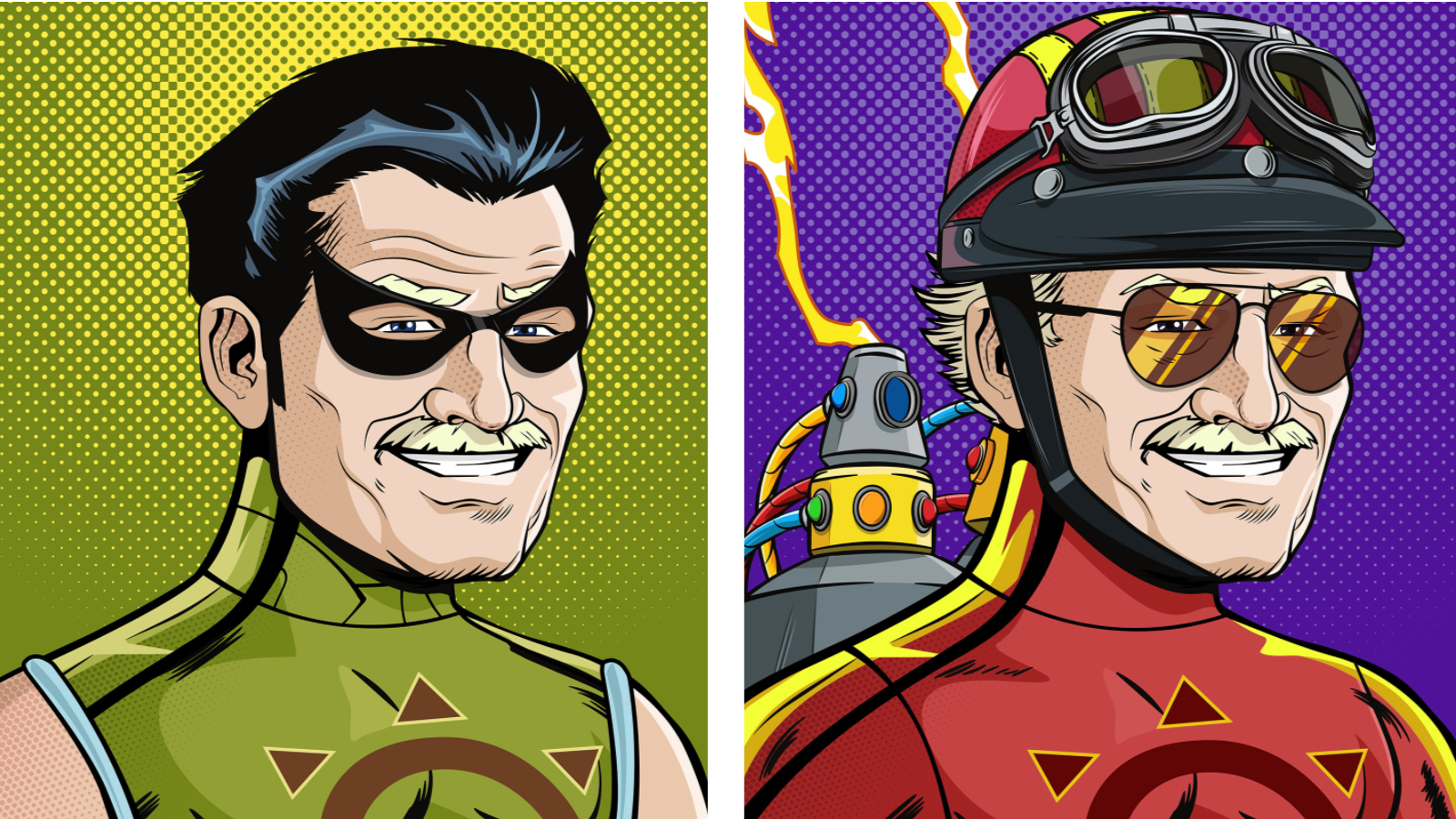Stan Lee NFT furore is just the start of many defiled legacies to come
Big sigh

Sign up for breaking news, reviews, opinion, top tech deals, and more.
You are now subscribed
Your newsletter sign-up was successful
The social media accounts of Stan Lee are facing a reckoning. Within hours of a Twitter post announcing the use of Stan Lee’s characters in a series of NFTs, fans across the internet were rallying in protest.
On December 14, @TheRealStanLee – Stan Lee’s Twitter account, now run by POW! Entertainment – posted about the “NFT (digital art) collection” coming later in the month, showcasing the Indian superhero Chakra The Invincible that Lee created before his death in 2018.
From championing diversity to embracing new tech, Stan was 1 step ahead of the curve. To honor his innovative spirit, Stan's 1st Indian hero, Chakra The Invincible, debuts in his own NFT (digital art) collection from 7:30pm PT 12/27-12pm PT 12/29! Sign up: https://t.co/Crub8yo09X pic.twitter.com/p9cQcKxiUIDecember 14, 2021
Chakra remains one of Lee’s lesser-known creations, compared to the titans of the MCU he had a hand in creating – Hulk, Spider-Man, Iron Man, and many more – and many people may be hearing about Chakra for the first time today. However, it’s worth noting that Chakra even starred in an animated film that aired in both English and Hindi, premiering on Cartoon Network in 2013.
But it’s not the choice of character fans are decrying, but the use of Lee’s creations (as well as his likeness, as you can see in the images above) in the speculative NFT market – a largely unregulated trading industry that can see digital artwork sold for hundreds of thousands of dollars, and which also has an environmental impact.
NFTs are often marketed as a way for artists to gain new revenue streams, though the reality of NFT trading is one of high volatility, with values soaring and plummeting as traders seek to gain quick returns on their investments. Some are even scouring the internet for artist images to mint as NFTs, and then sell, without the original creator’s permission, hurting the demographic they were meant to offer a financial lifeline to.
Of course, the rights of Stan Lee’s characters do belong to POW!, but that hasn’t stopped fans – and just those that hate the concept of NFTs – from decrying what they see as a tarnishing of Lee’s legacy.
Dictionary.com had possibly the best response, stating that “The verb 'defile' was first recorded in 1275–1325, and comes from the Old French word 'defouler,' meaning "to trample on, violate."”
Sign up for breaking news, reviews, opinion, top tech deals, and more.
Others simply comment “This is so awful,” “This is terrible,” or more fittingly – given Lee’s iconic piece of dialogue from the Spider-Man comic – someone reminding the account’s social media manager that “with great power comes great responsibility.”
Not the only one
The estates of deceased celebrities have long been a source of tension between those able to profit from someone’s likeness and creative output, and those who wish to see a legacy respectfully left alone. Everyone from Michael Jackson to Tupac has been resurrected for the stage in holographic form, giving event organizers a way to capitalize on a deceased artist’s following long after their death.
But the controversial use of NFTs is especially hard to swallow when it’s impossible to know whether Lee himself would have signed off on the venture – and given the many years of manipulation and financial abuse he received at the hands of those in charge of his assets, as well as tussles over control of his social media accounts. And as NFTs continue to gain traction, we are only going to see more examples of beloved creators having their work co-opted for this shady, speculative industry.
We're not ones to overly romanticize the dead, and nor do we see Lee’s creation of Chakra The Invincible – an Indian superhero, written by a white man, as something that needs particular guarding from a protective fandom.
But one thing that does connect Lee’s creations across the world of comic books is a sense of hope – of individuals able to rise above their situation, inherit incredible powers, and fight for their values. Using the IP of a dead man to sell digital artwork in a trash-fire trading market does not align with any of that.
Excelsior, we guess.

Henry is a freelance technology journalist, and former News & Features Editor for TechRadar, where he specialized in home entertainment gadgets such as TVs, projectors, soundbars, and smart speakers. Other bylines include Edge, T3, iMore, GamesRadar, NBC News, Healthline, and The Times.